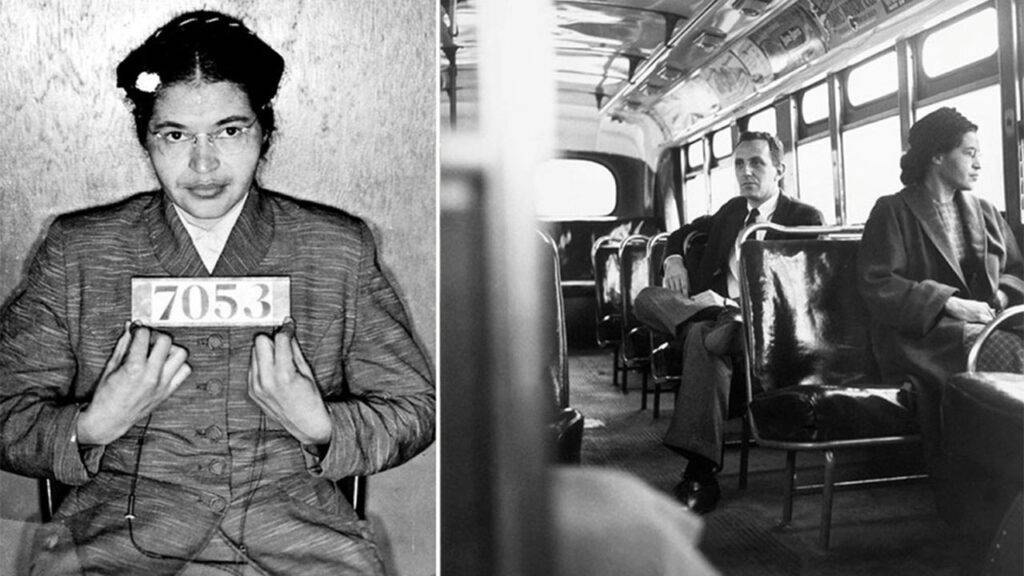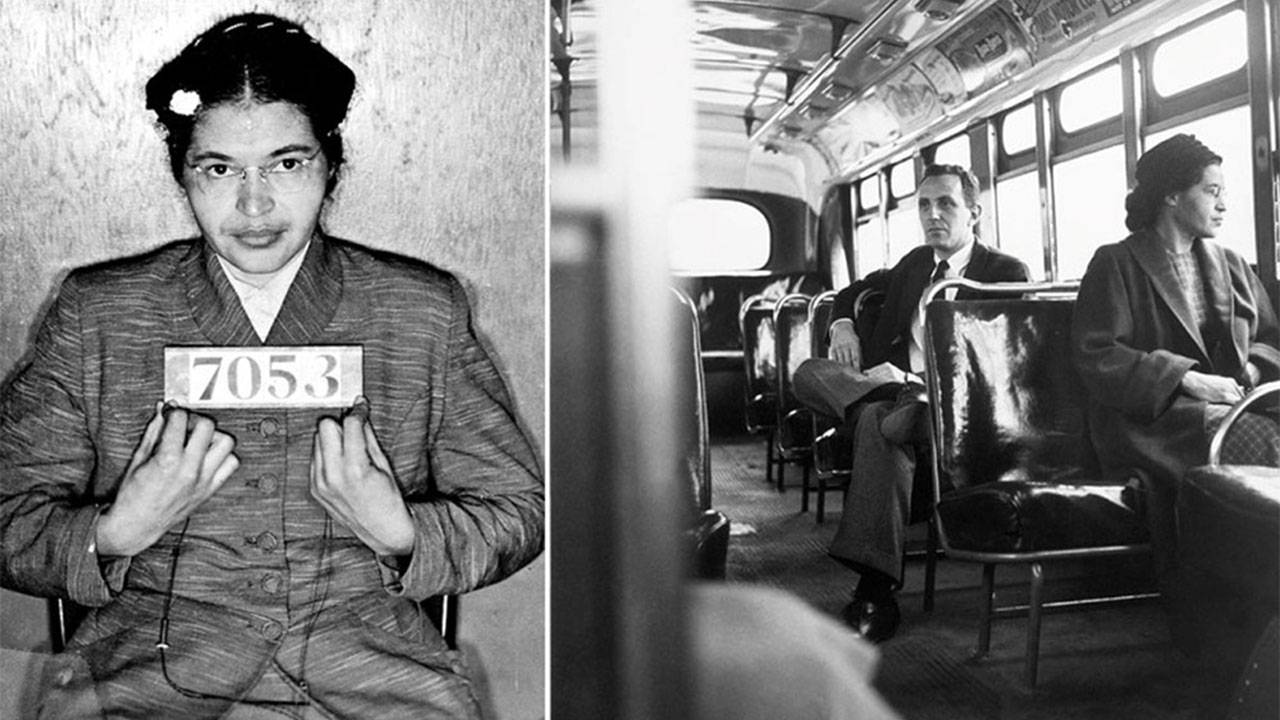In the annals of the Civil Rights movement, Rosa Parks stands as an emblem of courage and defiance. Her pivotal role in the Montgomery Bus Boycott, triggered by a simple yet profound act, reshaped the trajectory of American history.
Let’s delve into the chronicles of this transformative event, exploring the question that echoes through time: “When did Rosa Parks say no?

Rosa Parks Bus Boycott: When Did Rosa Parks Say No?
On December 1, 1955, the wheels of history were set in motion when Rosa Parks, an African American seamstress, refused to relinquish her seat to a white man on a Montgomery bus. This seemingly ordinary act reverberated far beyond the confines of that bus, becoming a catalyst for one of the most significant movements in American history.
Parks’ refusal to comply with the unjust segregation laws was an assertion of dignity and equality, encapsulated in a single word – “No.”
As per Sources, “Her courageous act of protest was considered the spark that ignited the Civil Rights movement. For decades, Martin Luther King Jr.’s fame overshadowed hers.”
When Did the Rosa Parks Bus Boycott Happen?
The reverberations of Rosa Parks’ refusal were not confined to that December day. The Montgomery Bus Boycott swiftly unfolded as a formidable response to the systemic injustice endured by African Americans.
Lasting from December 5, 1955, to December 20, 1956, this boycott marked the inception of large-scale demonstrations against segregation in the United States.
As Per Sources, “Four days before the boycott began, Rosa Parks, an African American woman, was arrested and fined for refusing to yield her bus seat to a white man.” This act of defiance galvanized the African American community, leading to a unified and determined stand against discriminatory practices.
Decades of Injustice Culminate in a Defiant Stand
Four days before the boycott commenced, Rosa Parks found herself arrested and fined for her refusal to comply with segregation norms on the bus. This incident, while a personal ordeal for Parks, became a rallying point for the African American community and their allies.
The boycott was not merely a response to Parks’ arrest but a collective expression of frustration with systemic racism and discrimination. The African American community in Montgomery united to challenge the segregated bus system, and their resilience would echo throughout the Civil Rights Movement.
Legacy and Continued Impact
Rosa Parks’ courageous act and the subsequent boycott left an indelible mark on American history. The boycott’s success in challenging segregation on buses marked a significant victory for the Civil Rights Movement. Parks’ legacy lives on as a symbol of resistance, inspiring future generations to stand up against injustice.
“The Montgomery Bus Boycott was a testament to the power of peaceful protest and civil disobedience in the face of injustice.” – The Henry Ford
Conclusion
The Rosa Parks Bus Boycott, sparked by one woman’s courageous refusal to accept racial segregation, serves as a reminder of the transformative power of individual actions. Rosa Parks’ legacy extends beyond the boycott, influencing the trajectory of the Civil Rights Movement and leaving an enduring impact on the fight for equality.
Decades later, her story continues to inspire and educate, underscoring the importance of saying “No” to injustice and standing up for what is right.





